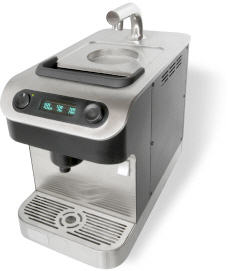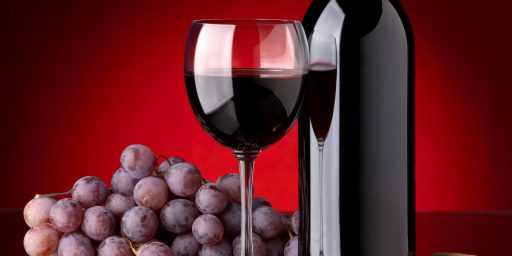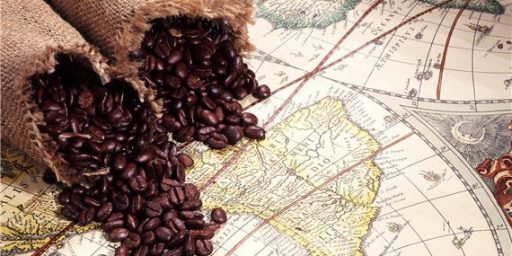$11,000 Coffee Maker
 Paul Adams asks, “Could a Coffee Maker Be Worth $11,000?”
Paul Adams asks, “Could a Coffee Maker Be Worth $11,000?”
The short answer is No, at least at the household level, barring the return of Carteresque inflation. But the machine in question, the Clover 1s, isn’t aimed at consumers but rather coffee shops. And it sounds pretty spiffy:
It brews coffee like a French press, but it’s more dramatic to watch and much more precise. Unlike lesser methods of making coffee, which are no more reliable than their users and can’t be counted on to produce the same cup twice, the Clover is equipped with a “PID algorithm” for regulating temperature and “programmable workflow modes” to help micromanage the brewing process. Latourell enumerates six variables that contribute to the taste of brewed coffee—choice of bean, grind, “dose” of coffee, brewing time, temperature, and amount of water. The first three, for better or worse, are in the hands of the barista (“Call me when you get a better grinder!” Latourell half-teases the Grumpy staff)—but the Clover can precisely regulate the last three.
The result, apparently, is some pretty good coffee. More importantly, it’s a different idea of coffee.
By creating this rigorous laboratorylike brewing environment, it encourages cafes to explore the nuances of different beans, where and how they’re grown and dried and sorted and roasted. And the attention to nuance gets passed along to the customers: Grumpy’s clientele can choose from a coffee menu listing several brews, including the Cruz del Sur, “punchy and bright with pear and green apple,” and the San José El Yalú, “complex and crisp with butterscotch, grape, chocolate and plum.”
The aspirational comparison of coffee to wine is obvious, and the passionate young Clover virtuosos at Cafe Grumpy indeed remind me of wine enthusiasts; they’re seriously invested in their work, nothing like the sullen soy-foamers at Starbucks or even at other independent coffee shops I frequent. On the cafe’s blog, barista Ed describes his recent visit to coffee farms in Panama.
For now, Latourell admits that wine may be “50 years ahead of coffee” technologically. “We’re just starting to scratch the surface of what can be done with coffee, how we understand it.” But that’s changing fast. The world of winemaking is wracked by a tension between the old, individualistic ways, in which each wine tastes distinctively of its origin, and the new methods that produce best-selling wines in a uniform “global” style divorced from regional characteristics. The story of coffee is the reverse—until recently, coffees were blended and branded to suit a homogenous popular taste, and only now is there a rising interest in the expression of varietal and regional differences.
At this price, with its need to sell cups of Joe at $10-$15, it all seems a little silly. Then again, I can remember when the idea of paying $10 a pound for coffee beans that one had to actually grind (when name brand coffees already ground could be had for $1 a pound) was absurd.





So it brews coffee like a French Press. My Bodums French Press costs $30 and I would wager that using the same beans, it would give me the same cup of coffee. Gee, I just saved myself $10,970.
I have a $10 drip-grind coffee maker in my office. It produces coffee with cafeine. What else matters?
Paying $1/lb. for stale Robusta coffee (e.g., “brand name”) is absurd; it isn’t worth a dime.
Want to save money on good coffee? Roast it yourself.
I kind of like being able to introduce some variability. Oh well, if the machine tells me how I like my coffee, guess I’d better listen.
Next: Robot bartenders.
Worth noting that the $10-15 price is a byproduct of the cost of the beans far more than the machine. Most shops with Clovers sell drinks in the $2-$4 range (8-20 oz from high-quality beans). Just like with wine, bean prices can go as high as you want.